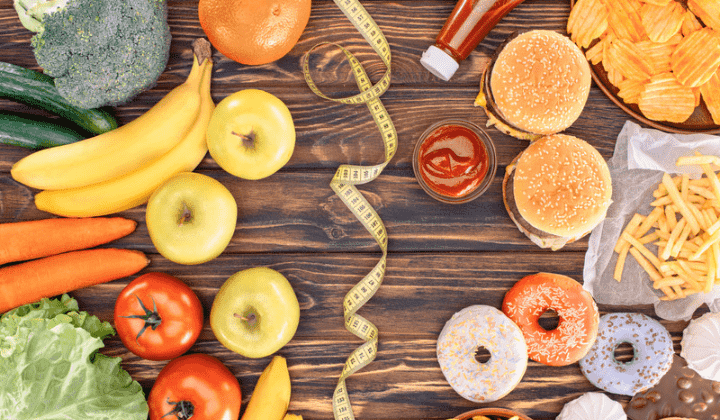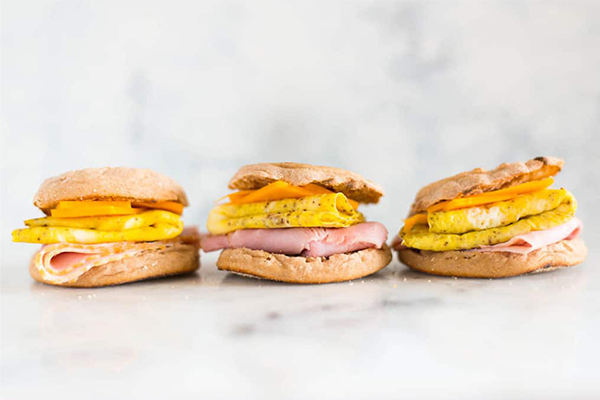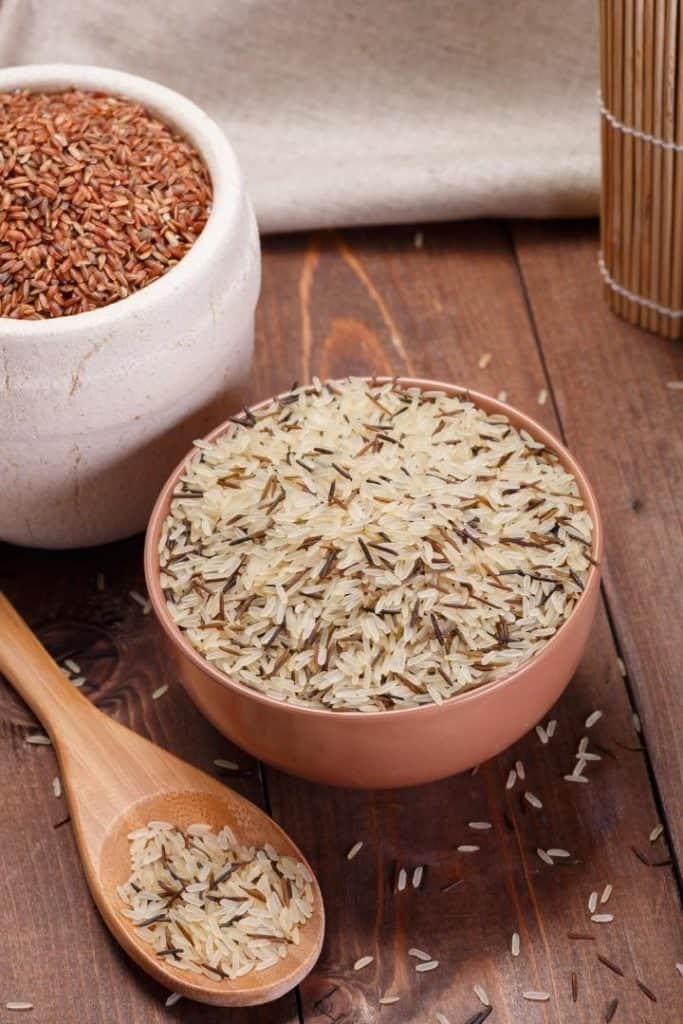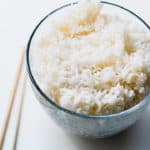Are you wanting to eat enough carbs to stay energized but worried about eating high carb foods that will derail you? Avoiding these 5 high carb foods will help you to reach your goals without losing energy.
What are Carbohydrates?
When asked this question most people start listing foods such as bread, rice, pasta, candy, and baked goods. Carbs are more than certain types of foods. Carbs are your body’s main source of energy and an essential part of any diet. When you eat carbs, your body converts them to glucose which is where your energy comes from. This is why many athletes consume sugary drink and food items before and during exercise, so they can keep the energy flowing while they are working hard.
For most people, carbs make up 70-80 percent of their daily calories. Although carbs are an important source of energy and a large post of most diets, not all carbs are created equal and choosing when and which carbs you consume can be important as someone who is on a fitness or weight loss journey.
Carbohydrates: Quality Matters
All carbs have something known as a glycemic index. The higher a food item is on the glycemic index, the more it spikes your insulin. For people with diabetes, paying attention to the glycemic index of a carb is important, it helps them to manage their disease. This may also be important for someone on a health or fitness journey who wants to keep their blood sugar at a steady level to avoid binge eating or strong cravings for sugary foods.
Types of carbs – Simple Vs. Complex carbs
Simple carbs are carbs that spike your blood sugar quickly and cause you to crave more shortly after. These carbs tend to be lower in fiber and consist of things like candy, sugary drinks, and refined foods like white bread and pasta. The spike in blood sugar is followed by a drop in blood sugar and when it gets below baseline the cravings kick in! When this happens it usually leads to a hard to break cycle of excessive carb (often sweets) consumption which is not helpful for anyone who is trying to make healthy lifestyle changes.
Complex carbs are different. They tend to be higher in fiber which leads to a slow and steady rise in blood sugar, followed by a slow decline. This slow decline makes you less likely to have immediate cravings, you likely won’t have hunger triggered for about 4-6 hours after. Foods like whole grain breads, oats, and brown rice are among these complex carbs.
Which High Carb Foods Should be Avoided?
While you certainly need some carbs in your diet to maintain a healthy energy level and avoid feeling sluggish and foggy headed, you can choose your carbs wisely in order to aid your health and fitness journey and get the results you want. There is evidence suggests when your diet is made up of foods that are high in added sugars, your health can be negatively impacted.
Here is a list of high carb foods you should consider limiting in your diet:
- Dried Fruit – While raw fruit is healthy food choice, drying fruit removes the water and condenses the amount of natural sugar. Consider grabbing raw fruit instead.
- Refined Starches – This includes things like white breads and pastas. While they are not all bad, unlike their whole grain counterparts, food items made of white flours and grains are stripped of the fiber component which causes blood sugar spikes.
- Sugary Drinks – The name says it all. Drinks that are nothing but sugar will no doubt spike blood sugar and lead to cravings for more which could sabotage your plan to follow a healthy diet. Not to mention, there is no nutritional value so while these drinks may taste good, they will not leave you full or benefit your diet in any way.
- Beer/Wine – Similar to sugar drinks, these beverages are full of sugars and will cause blood sugar spikes and lead to cravings. Another downfall of consuming these alcoholic beverages is that your sleep patterns and the inflammation in your body may be negatively impacted.
- Low-Fat and Fat-Free Salad Dressings – Most people who are following a diet or looking to make a healthy lifestyle change tend to lean towards low or fat – free food items. Although these items may be free of or low in fat, they often have more sugars than their full fat counterparts so even though their calorie count may be lower, their glycemic index is not.

Do You Need Carbs in Your Diet?
Yes! Though many fad diets and supposed health experts nowadays may tell you that you do NOT need carbs in your diet. Most educated nutritionists and dieticians will tell you that you do indeed need carbs. Eating carbs will not keep you from losing weight or cause you to gain it if you are conscious of your intake.
Benefits of carbs
Carbs do more than just spike your blood sugar or cause it to drop. They provide fuel for your brain, heart, kidneys, and central nervous system. They are so important to the function of multiple body systems that you store extra carbs in your muscles and liver so that when you are low on them, your body has emergency access.
Not eating enough carbs can often leave you feeling weak, fatigued, foggy headed, even nauseated and constipated. There is a reason that your body responds so poorly when in a carb deficit, it is setting off alarms to let you know it needs them.
Carb/nutrient timing
Believe it or not, there actually is something such a “good time” to eat carbs. This is especially true if you are a very active individual (or starting a fitness routine). To optimize your nutrition and avoid completely depriving yourself of carbs on the “avoid” list you can instead, eat those carbs based around your activities. For example, if you are planning to do a 30-minute workout and really want to eat some dried fruit or white rice, try eating those items within 60 minutes before or after your workout. During this timeframe your body is better able to utilize these carbs in a way that will not sabotage your health and fitness goals.
Pre workout you should aim to pair a simple carb with 10-12 grams of protein and post workout you should aim to pair a simple carb with 20 or more grams of protein. This way you give your body the energy boost it needs to begin and recover from the workout but also provide it with a good amount of protein so that you are avoiding muscle breakdown. Fueling your body properly will help you to not get injured and is an important piece of all health and fitness journeys. All that being said, you should opt for complex over simple carbs post workout if you did a workout late and will be going to bed soon.

How many carbs do you need?
The number of carbs you need varies greatly depending on your weight and activity level. If you are extremely active and do not eat enough carbs this can impact your energy level and ability to do well in your workouts. If you are someone who is more sedentary and you eat too many carbs, this can have a negative impact on your weight loss goals because the carbs will be converted to glycogen which is converted to fat. The recommended daily allowance (RDA) of carbs is 130 grams. However, this is not a one size fits all situation.
The general rule of thumb for carb needs is: 40-75% of your daily calorie intake (this is dependent on your activity level, the more active you are the closer to the 75% mark you would be) OR very active individuals can calculate using the 3-7 grams per kilograms (bodyweight) method.
For example: If you weigh 150 lbs (68 kg) you would want to aim for 204 g to 476 g of carbs per day.
Why You May Want to Reduce Carbs
Carb intake is not beneficial for activity level
If you are on a journey to lose weight and are focused more on the eating aspect than the moving aspect at the moment, then it may be beneficial for you to eat on the lower end of the carb intake recommendation. As previously mentioned, if your carb intake exceeds your activity level then those carbs are likely to be converted into body fat. Focusing more on protein intake than carbs may help you to avoid gaining body fat, stay full longer, and avoid the rise and fall of blood sugar caused by carbs that can lead to cravings and binges. Once you start moving your body more you will want to up your carb intake so that you can avoid feeling fatigued and maintain the proper energy needed to move your body.
History of health issues
If you are someone who struggles with either type of diabetes, then you will want to follow your doctor’s orders as well as your own intuition about carb consumption. Medical issues often mean that general rule of thumb will not apply to you so following medical advice is recommended.
Additionally, if you know you are someone who has issues with regulating your blood sugar (this does not always mean diabetes) then you will want to make sure that changes to the amount of carbs that you consume are done gradually. You will also want to consult a medical professional, nutritionist, or dietician if you are making changes and notice your body having adverse reactions. Some very healthy people may struggle with blood sugar regulation, especially during activity and this should not be ignored.

What are Some Healthy Carb Options?
There are plenty of health and delicious carbs out there so just because you are limiting certain types of carbs does not mean you will miss them. Consider swapping some of your less healthy carb favorites with the following:
- Whole grains (whole wheat or grain breads and cereals, brown rice, oats, farro)
- Starchy vegetables (Broccoli, cauliflower, squash, sweet potatoes)
- Fruits in moderation (berries, apples, bananas, oranges)
- Beans and Legumes (black beans, pinto beans, chickpeas, peas, lentils)
You never need to completely cut something out of your diet to reach your health and fitness goals (unless directed by a health professional of course). Educating yourself on eating a well-balanced diet can be key to your success!



Comments
No Comments